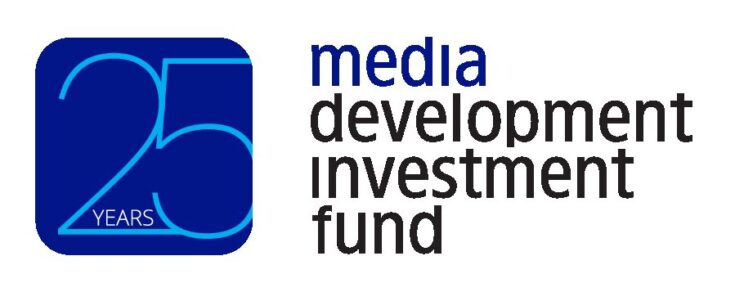By Kevin Brockland, Principal Investment Officer.
A Russian translation of this post is available here.
Over 25 years we have considered thousands of potential investments in media companies. Out of all the applications and conversations we have had, we have invested in hundreds of projects with well over 100 media organizations. MDIF raises third party capital which it then invests onwards. As such, there is a fiduciary responsibility to our investors and to have mechanisms in place to ensure we act accordingly. We view a similar role for MDIF in ensuring governance and oversight of our investees.
For equity investments, we frequently take a seat on the Board. Depending on where in the world, this may be called a Supervisory Board, Board of Directors, Board of Commissioners, or something else.
It is critical to note that representation on the Board does not mean solely representing the interests of MDIF. This would be a mistaken view. Boards are fiduciaries to represent the interests of all shareholders, inclusive of founders, investors, angels, and employees who may have accepted reduced pay to have an equity share. The loyalty of the Board and its members must, by necessity, be to the company and all its shareholders.
Delivering value at Board level
A lot has been written on corporate governance and the role of Boards in oversight. This is a relatively simplified way to say it, but there are key strategic decisions that need to be made which require Board approval or advice. This requires the Board members to be both knowledgeable of the company conditions and the market and overarching trends to be able to effectively provide guidance.
There is a clear divide between low-functioning Boards and high-functioning Boards. We strive not only to contribute individually via our representation to be a high functioning Board, but we also provide support and guidance to founders from how to create effective Board compositions to running the meetings themselves.
Advice to founders
There are a broad range of questions that founders have when they first establish a Board and first begin to run Board meetings. As the business matures, so do the processes around the Board meetings, including new sub-committees, independent members, and possibly observers.
When a company is first established, many founders believe that they are still too early to have a Board and that it simply serves as a distraction. However, at the seed round of funding, it can be very beneficial to establish a small Board, even if largely less formal in much of its functions. By doing so, a founder can be pulled up out of the daily grind and be forced to take a higher view, looking from the clouds seeing where you are heading. This is an opportunity to challenge all ideas and create a lively debate around the appropriate trajectory. When done well, this can be immensely useful.
Over time, the Board becomes increasingly more formalized, and the Board size will likely get larger if further investment rounds occur. It is important for the management to understand how to best facilitate the meetings to extract the highest level of utility. This starts, first and foremost, with the Board materials. Key considerations are as follows:
- KPIs, milestones, OKRs – Whatever the set of metrics or targets that are used by the organization, the starting point is understanding which are the most important to the business and how success should be measured. If a metric is not useful for management, it will not be useful for the Board. What is important here is that there are clear lines drawn between metrics and success/failure determination. If you are presenting to the Board the same metrics that management is using, you do not have to worry about the extra work of doing something specifically for the Board. You will also already have deep familiarity by having discussed these metrics regularly with the rest of the management team.
- Strategic issues – There will always be strategic issues that are presented to a business over time. This may be fundraising, product development, sales, or many other issues. The Board does not necessarily need to be inundated with the minutiae of daily management issues. The Board can serve a great function in providing input and insight into the key Issues that have high relevance and importance. Defining these weeks in advance of a Board meeting and regularly reviewing as the meeting approaches will allow for a more focused discussion and, in most cases, focus leads to effectiveness.
- Board deck – If you already know the metrics that matter and you already have a list of important strategic issues, draft an agenda prior to creating the deck. Tailor the agenda around these important points, then create the deck around this structure and send out no later than 72 hours in advance of the meeting. It is important that the deck is structured in a way that is not simply an update, but a launching pad for discussion and debate among the Board. This is what will lead to better outcomes. For larger, more complex companies, many have been able to hold better meetings by sending out “pre-reads” in advance of the agenda and deck. The pre-read is simply a teaser that gives some updates and primes the Board member on the topics that are anticipated to be included. These often initiate conversations with members in advance of the meeting. The management can then use these conversations to shape the flow of debate when the full Board is convened.
- Board matters vs advice – It is important that management understands the difference between what requires Board approval and what does not. Management is responsible for the day-to-day business and key decisions within the framework provided in the company formation and governing agreements. Differentiating advice from approval will save significant time for management to avoid running down rabbit holes unnecessarily.
MDIF as a Board member
Providing value as a Board member goes well beyond simply the day of a Board meeting. Effective participation can be broken down into three parts: preparation, participation, and outside of the meeting.
- Preparation – It cannot be overstated how important preparation is to being a good Board member. Even though materials may be circulated shortly before a meeting, it is important to reach out to the CEO, management, and other Board members to have preliminary discussions and understand the base level viewpoints in advance. Further, the starting point to begin thinking about a business is not 72 hours before the meeting, but rather a good Board member is constantly thinking of the business and how events are impacting it. Great preparation will hone the focus on the issues that are important, as time in Board meetings is limited and the longer it deviates, the less effective they become.
- Participation– In the meeting is where it can be a challenge for certain personality types and the combination amongst the various Board members. We try to understand that to be a valued contributor, we must first listen, enquire and, where necessary, challenge and debate. There is a tendency for advice to fall into two buckets: (1) the micro-manager delving into the non-essential; and (2) the need to demonstrate greatness. It is not our role to manage the finer details, especially when outside critical areas. It is our role, however, to question whether management is effectively doing so. The difference is to facilitate and not to dictate. The second point is a hazard of human behavior, but we can do our part to avoid devolving into a contest for ego supremacy to the detriment of the functioning of the Board.
- Outside of the meeting – Much of the value a Board member can provide comes outside of the meeting. These are the periodic interactions in the interim, building strong relationships among stakeholders, and knowing when to be proactive. With our value-add thesis on every investment, it is the outside-the-meeting component where most of our efforts deliver value to companies.
Why it matters
Corporate governance is important to all organizations. As a company grows it will evolve to a higher level of sophistication, and the managing of these governance processes will become increasingly important. The Board is tasked with a fiduciary duty to protect the interests of all shareholders, no matter if it is an investor, employee, or founder.
When managed effectively, improved governance drives better results. This has been widely researched and studied, with clear results. Beyond simply acting as a body that holds management accountable from a governance standpoint, Boards can provide great value in aligning strategically and enabling management to deliver results.
The bottom line
MDIF’s investment philosophy is centered around value-add and enabling the growth of companies that operate in less hospitable market environments. Building governance structures, along with our active role as a participant in those structures, is designed to build the long-term capacity to achieve sustainability, which fulfills not only our own mission and return objectives, but also those of the founders we partner with.

This article is part of our series, ‘25 things we’ve learned’, marking MDIF’s 25th anniversary.
